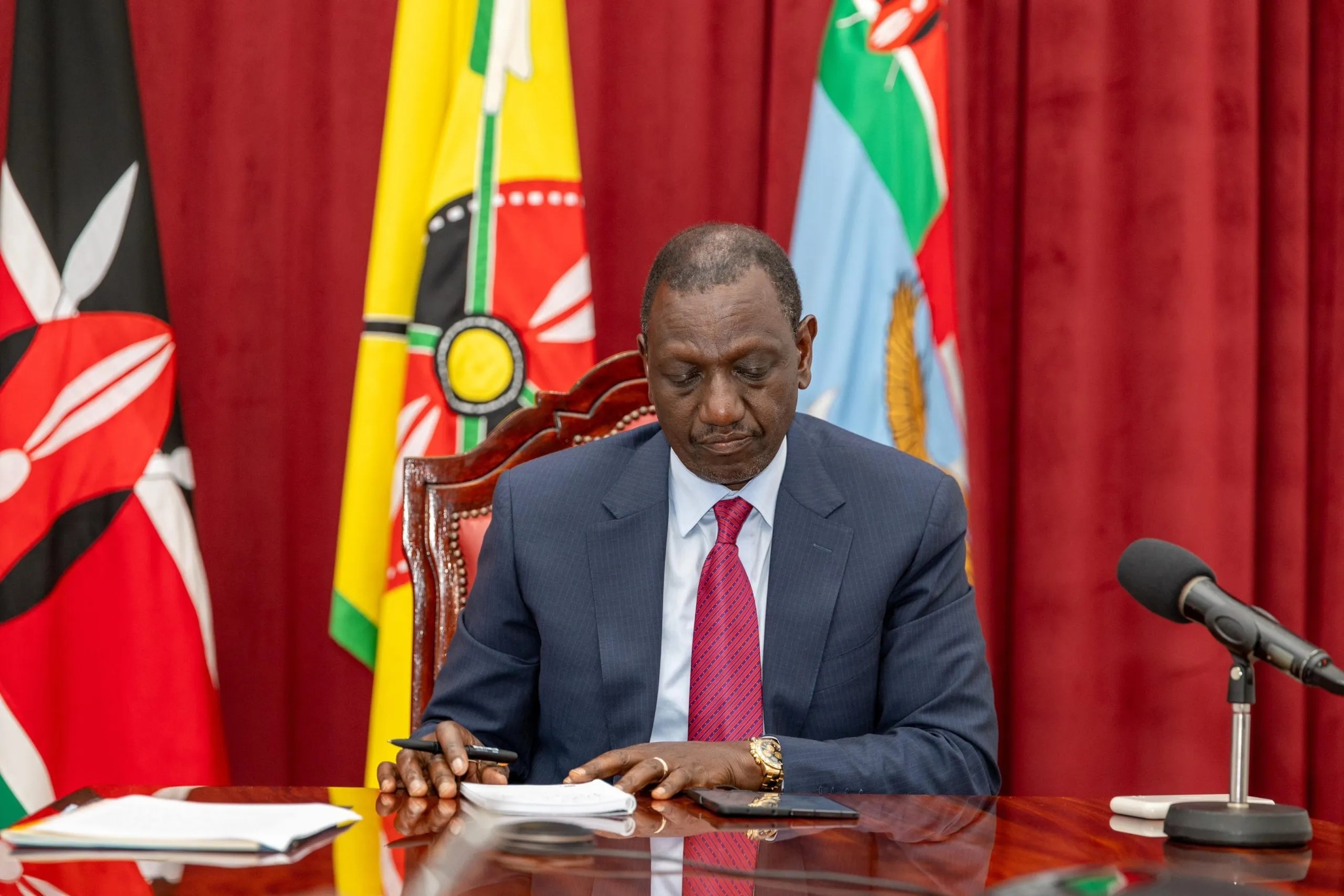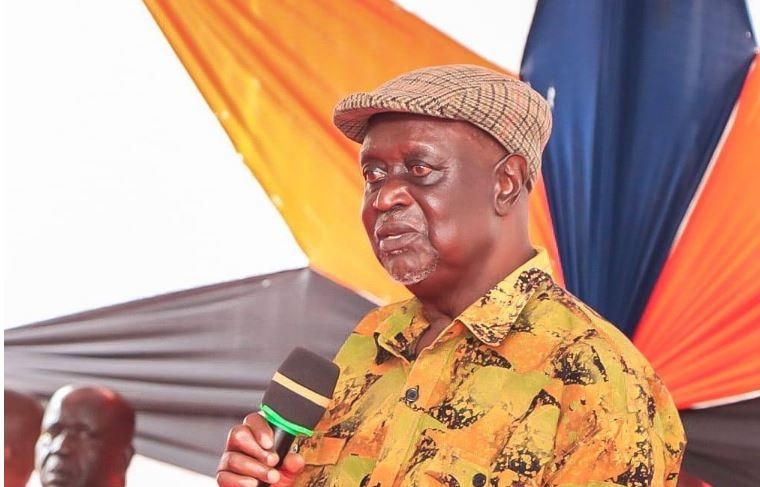With political parties created and dumped at each election, politicians loyal only to themselves and voters swayed by ethnic loyalties, Kenya’s electioneering really is messy.
Add to that a new Constitution many are still struggling to understand and a National Assembly competing with the Senate.
Some 47 county governments are in a tug-of-war with the national government, a conflict that leaves county workers going for months without salaries.
Even the Supreme Court, the topmost authority on legal matters, has been taken to court by persons unhappy with its rulings.
The apparent disorder is frustrating for those who believe the country should focus strictly on economic development. They say Kenya would be far ahead if only politics didn’t get in the way. Examples from Rwanda, China or Egypt come to mind, though those countries have been criticised for lack of political freedoms.
Despite economic hardship, Kenyans are fully engaged in the country’s democratic system of government. There were 90 registered political parties as of May 2022. More than 16,000 people were cleared to run for elective positions in the August 9 election.
There is a vibrant media mostly free to criticise any matter. Kenyans are among the biggest users of social media in Africa, and one of the few countries where the government has not shut down the Internet during elections. Democracy may appear chaotic, with everyone expressing their view on how the country should be run, but what’s the alternative?
The first-past-the-post system provides incentives for perpetual formation and reformation of ethnic alliances for the purpose of electoral contest
‘BORING’ ELECTIONS
The calm seen in 2022 shows that Kenyans are making good progress with handling election-related disputes. Unlike previous years, predictions of violent protests were misplaced. Qatar-based TV station Al-Jazeera described the August General Election as "the most boring".
Thirty years after multi-party democracy was restored, Kenya has come a long way, but challenges remain. Politics is based on ethnic alliances rather than uplifting the living standards of the population. Individuals implicated in crimes are allowed to participate in elections. The institutions expected to enforce ethics seem paralysed. Kenya’s elections are a cut-throat affair in which aspirants fight for victory at any cost.
Prof Karuti Kanyinga of the University of Nairobi believes the first-past-the-post electoral system undermines political parties. In first-past-the-post systems, the contestant who gets the most votes is declared the winner. Contestants must invest in mobilising sufficient voters to be assured of winning.
Political leaders, therefore, enter into ethnic coalitions using the numeric strength of their respective communities as a bargaining chip. This explains why ethnic coalitions emerge at each election.
“The first-past-the-post system provides incentives for perpetual formation and reformation of ethnic alliances for the purpose of electoral contest,” Kanyinga wrote in a report on democracy and political participation.
The first-past-the-post system has embedded patronage politics and corruption in the political arena. Political leaders are no longer accountable to society.
Two governance experts, Saskia Brechenmacher and Nanjira Sambuli, also say the first-past-the-post system results in a continuous pattern of dealmaking between political insiders. The dealmaking protects the economic and political power of a narrow class, while undermining more meaningful forms of political accountability.
In an article for the Carnegie Endowment for International Peace, Saskia and Nanjira said dealmaking puts women and other marginalised groups at a disadvantage. Ethnic-based coalitions are generally weak and centred on personalities. Connections and financial power are more important than policy ideas or a track record of community leadership.
The advantage of ethnic coalitions is that they help reduce tension in the country. The Jubilee-led coalition that emerged in 2013, for instance, brought together the two rival communities at the centre of the 2007–08 electoral conflict. The March 2018 handshake between President Uhuru Kenyatta and former Prime Minister Raila Odinga ended the tension arising from the 2017 election.
The positive elements of ethnic coalitions can be tapped for long-term political stability. A government permanently built on ethnic coalitions is called a consociational government. Switzerland, famous for its unique type of rotational presidency, has a consociational government.
Switzerland is a federal state consisting of four main ethnic groups: French, German, Italian and Romansh. The ethnic groups are represented in Parliament by political parties. Parliament elects seven persons to sit in the Federal Council. Each of the seven members sits in the Federal Council for four years but serves as President for only one year.
The Kenya we want is where an El Molo, Endorois, Ogiek or Pokomo can become President
ROTATIONAL PRESIDENCY
The membership of the Federal Council is designed to include all the ethnic groups in Switzerland. The seven members are equal in status and must achieve consensus in decision-making. Members of the council are not expected to publicly criticise each other. In essence, the Federal Council is a collective presidency.
“A rotational presidential system would open up the democratic space by eliminating tribal alliances that have led to a majority of tribes ganging up in the so-called tyranny of numbers to deny others the opportunity to rule the country,” outgoing Siaya Governor Cornel Rasanga said last year. “The Kenya we want is where an El Molo, Endorois, Ogiek or Pokomo can become President.”
Constitutional expert Jill Cottrell Ghai warns that sharing government on sectarian lines can create problems if poorly implemented. She gives the example of Lebanon, where the President is always a Maronite Christian, the Prime Minister a Sunni Muslim and the Speaker of Parliament a Shia Muslim. The process of allocating positions between those three groups has paralysed the government.
“This system means that to hold office, you do not have to appeal broadly to the electorate but only to your own community, and the identification of who is to be the kingpin for a particular community does not depend on competence for the post,” Ghai says.
Star columnist John Wahome also advises Kenyans to be careful about a rotational presidency because it can put unqualified persons in power. “Distinguished incumbents may not be eligible to vie twice. At term’s end, they must constitutionally vacate and give room to a possible political greenhorn, whose only qualification is the fact that his tribe’s time to lead has come,” Wahome warns.
What’s the future of Kenya’s democracy? One of the biggest challenges is growing disenchantment with governance. This year’s elections saw a turnout of 65 per cent, which is low compared to previous elections. Signs of reduced interest in electoral politics were observed early this year, when the voter registration exercise failed to meet its target. IEBC had a target of 4.5 million new voters but managed to register less than a million.
THREAT OF CYNICISM
In an analysis published after the August 9 elections, the US-based Council for Foreign Relations said cynicism among the youth is to blame for the declining interest in voting. Disputes over election results could put into question the legitimacy of leaders and institutions, leading the youth to believe the state is disconnected from the people.
The future, therefore, lies in deliberate measures to restore the credibility of government and political leaders. Any individual implicated in corruption or criminal activities must resign or be removed from office. Institutions such as the presidency, Parliament, the Judiciary and IEBC should be run in a manner that inspires confidence among the public.
It will be necessary to acknowledge that Kenya is an ethnic federation and that both small and large ethnic groups deserve representation in government. The first-past-the-post election system encourages unhealthy coalitions, which are not good for democracy.


















